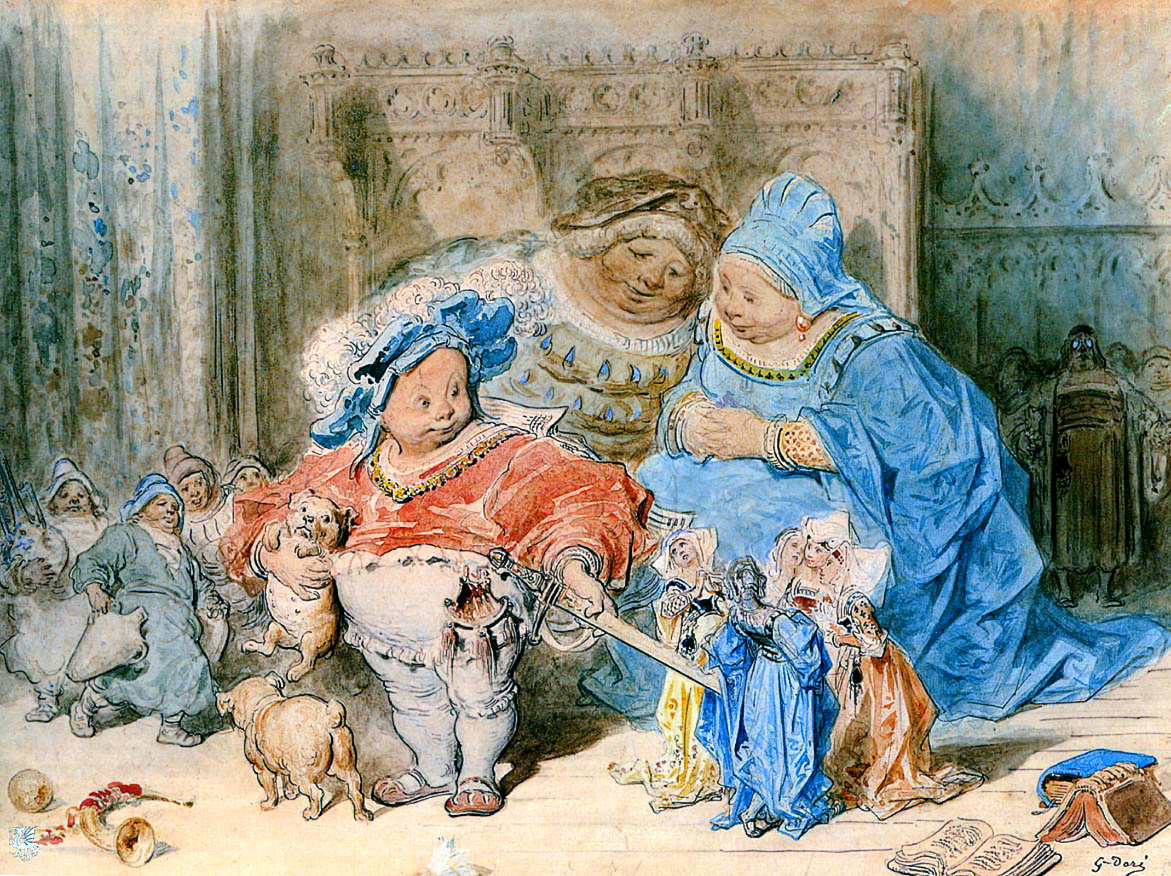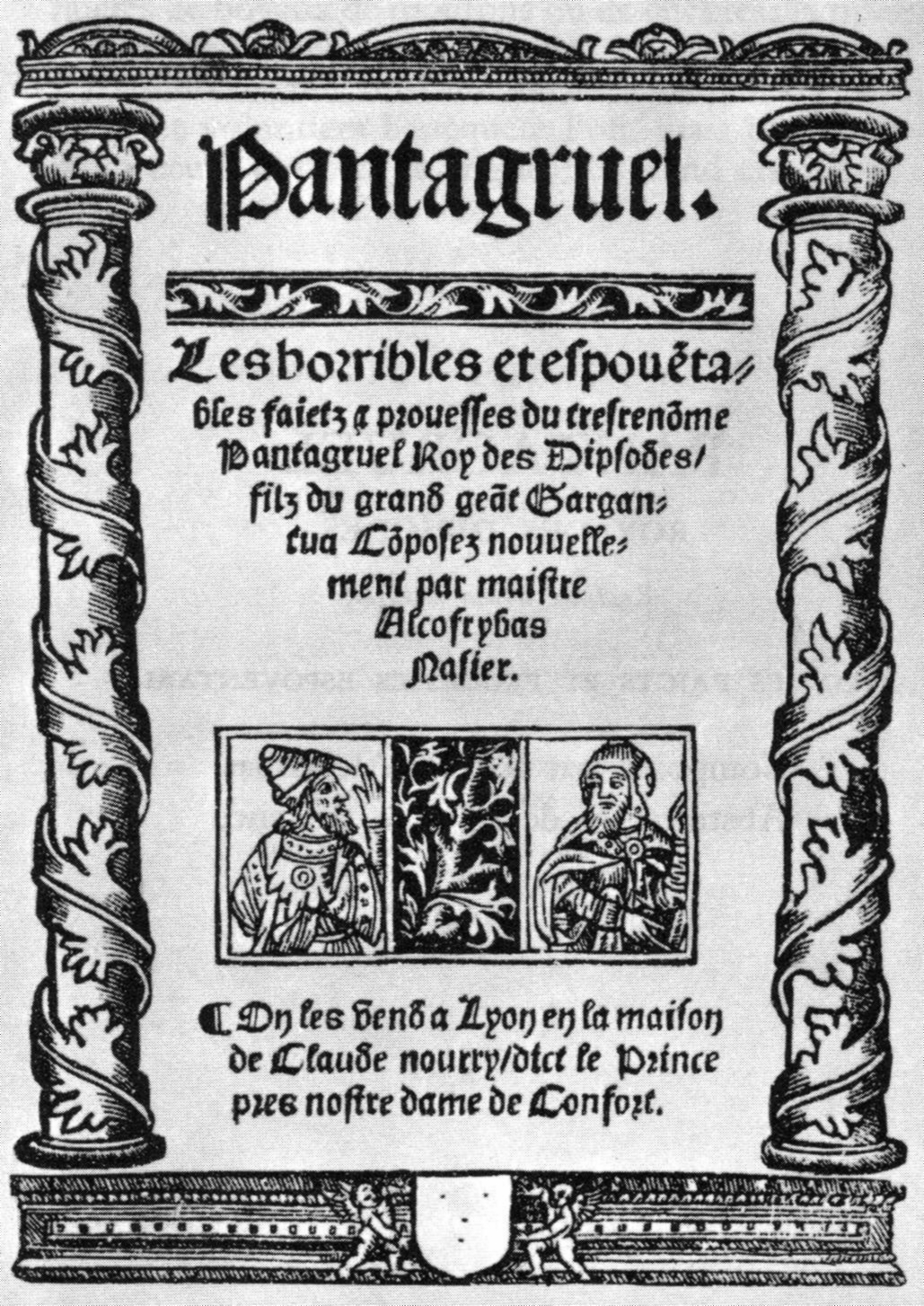Today is your lucky day: I’m feeling generous so you get two Words of the Day instead of one. And not just any words at that; these words play a huge role in French literary history as the books they appeared in had a lasting impact on French literature, enriching the language in a significant way. As may be the case with Shakespeare’s works for native English speakers, the books of this author are a must-read for French students. Many of the words he introduced are an integral part of the French language and culture and I was quite surprised (though immensely pleased) to see that these two Words of the Day even managed to make their way into the English language. After brobdingnagian and behemotic, here are two new alternatives to boring gigantic: pantagruelian and gargantuan.
The words pantagruelian and gargantuan were coined after the name of two characters from two very famous books by French author François Rabelais. Born at the end of the 15th century (either in 1483 or 1494, historians are not sure when), Rabelais was a renowned writer, doctor, monk, humanist and Greek scholar who lived during the first half of the 16th century (he died in 1553).
His two most famous books Pantagruel (The Horrible and Terrifying Deeds and Words of the Very Renowned Pantagruel King of the Dipsodes, Son of the Great Giant Gargantua) and Gargantua (The Very Horrific Life of Great Gargantua, Father of Pantagruel) were published respectively in 1532 and 1534 under the pseudonym Alcofribas Nasier; an anagram of François Rabelais’ name. The main characters are two giants, Pantagruel and his father Gargantua.
The adventures of the two giants were written in an amusing, extravagant, and satirical vein; with a side of sexual double-entendres and dirty jokes. Always humorous, sometimes absurd, the adventure of Pantagruel and Gargantua also presents a great depiction of the humanistic ideals of the Renaissance.
Tall, strong, perpetually hungry and of a jolly disposition; these are the most well-known traits of Gargantua and Pantagruel. However the current meaning of gargantuan and pantagruelian only reflects two of those important characteristics: size and appetite. Indeed the adjectives can mean either huge, gigantic, enormous; or voracious and insatiable.
Ex: He is a growing boy, that’s why he has such a pantagruelian appetite.
Ex: You wouldn’t have believed the size of this cow, it was gargantuan.
I hope you had as gargantuanly great a time reading this article as I had writing it.
See you soon for a new word of the day; in the mean time I recommend that you read the wonderful stories of Gargantua and Pantagruel, you won’t regret it.

